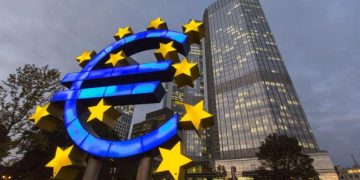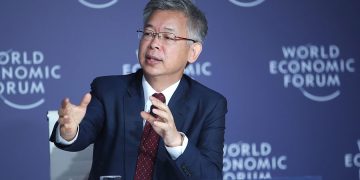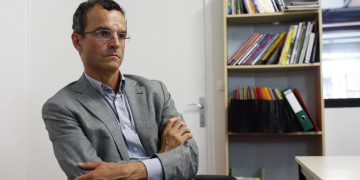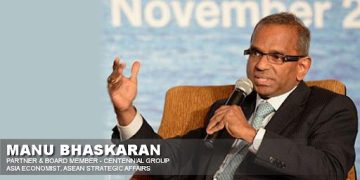The concept of a green economy has gained significant traction over the last few decades as the world increasingly grapples with environmental challenges such as climate change, resource depletion, and biodiversity loss. The transition to a green economy is seen by many as a crucial step toward achieving global sustainable development, balancing economic growth with environmental responsibility.
But is the shift to a green economy truly capable of driving sustainable development worldwide? Can it lead to the long-term environmental, social, and economic benefits that proponents envision? This article explores the green economy transition, its potential to foster sustainable development, and the challenges and opportunities it presents for the global community.
1. What is a Green Economy?
A green economy can be defined as an economic system that seeks to promote sustainability while reducing environmental risks and ecological scarcities. It aims to foster growth while ensuring that natural resources are used responsibly and that the environment is protected for future generations. The key principles of a green economy include:
- Decoupling Economic Growth from Environmental Impact: A green economy focuses on growth that does not rely on increased resource consumption or environmental degradation. This could involve reducing carbon emissions, transitioning to renewable energy, and embracing sustainable agriculture and manufacturing practices.
- Promoting Circular Economy: Instead of the traditional “take, make, dispose” model, a green economy encourages the idea of a circular economy, where resources are reused, recycled, and repurposed to minimize waste and reduce reliance on finite resources.
- Inclusive and Equitable Growth: A green economy is not only about environmental sustainability but also social inclusion. It advocates for addressing inequality and ensuring that the benefits of green policies reach all segments of society, particularly those who are most vulnerable.
- Investing in Green Technologies and Industries: Central to the green economy transition is the development and adoption of technologies that promote sustainability. This includes renewable energy sources like solar, wind, and hydropower, as well as innovations in energy efficiency, waste management, and green transportation.
The green economy, in essence, seeks to redefine economic success by integrating environmental health, social equity, and economic prosperity into one cohesive framework.
2. How the Green Economy Can Promote Global Sustainable Development
The potential of a green economy to drive global sustainable development lies in its ability to address some of the world’s most pressing environmental challenges while fostering social and economic benefits. Below, we discuss how the green economy transition can help achieve sustainable development on a global scale.
2.1. Combating Climate Change
Climate change is one of the most urgent global challenges, and the green economy offers a clear path to mitigating its impacts. Transitioning to renewable energy, improving energy efficiency, and reducing greenhouse gas emissions are fundamental components of the green economy. A shift away from fossil fuels to cleaner, more sustainable energy sources such as solar, wind, and hydroelectric power is essential to reducing global carbon footprints and slowing the warming of the planet.
According to the United Nations Environment Programme (UNEP), the green economy provides a means to achieve the Paris Agreement’s climate targets by transforming energy systems, reducing emissions, and creating climate-resilient infrastructures. Moreover, the widespread adoption of clean energy technologies and the electrification of sectors such as transport and industry could reduce carbon emissions while also creating new economic opportunities.
2.2. Resource Efficiency and Sustainability
The world’s growing demand for resources has placed significant pressure on natural ecosystems. Unsustainable practices such as deforestation, overfishing, and intensive agriculture have contributed to the depletion of vital resources, threatening long-term food security and the overall health of the planet.
A green economy prioritizes resource efficiency, aiming to use fewer resources to produce more value. By promoting practices such as sustainable farming, eco-friendly manufacturing processes, and efficient waste management, a green economy can reduce environmental degradation and promote the preservation of biodiversity. The circular economy model, which focuses on reusing and recycling materials, further reduces waste and minimizes the consumption of finite resources.
Through these approaches, the green economy can help conserve ecosystems, protect water resources, and promote sustainable agriculture and fisheries, ultimately ensuring that natural resources are available for future generations.
2.3. Job Creation and Economic Opportunities
The transition to a green economy also presents significant economic opportunities, particularly in terms of job creation and industrial growth. Green industries, including renewable energy, green construction, sustainable agriculture, and eco-tourism, have the potential to generate millions of jobs worldwide. For example, the renewable energy sector alone has already created millions of jobs and is expected to continue growing as countries invest in clean energy technologies.
Additionally, transitioning to a green economy can drive innovation and spur the development of new markets. From electric vehicles to green building technologies and sustainable consumer goods, the demand for eco-friendly products and services is rising, leading to economic diversification and resilience.
Investing in green technologies can also reduce long-term costs, such as those associated with healthcare due to air pollution or the environmental damage caused by unsustainable practices. This makes the green economy an attractive option for governments looking to stimulate economic growth while addressing pressing environmental concerns.
2.4. Social Equity and Inclusive Growth
Sustainable development is not just about environmental protection; it also involves social inclusion and economic equity. A green economy aims to ensure that the benefits of sustainability are accessible to all members of society, particularly marginalized or vulnerable groups. In many regions, communities that are most affected by environmental degradation, such as those in poverty or living in developing countries, are also the least responsible for it.
By focusing on green technologies and industries, the green economy can create new opportunities for marginalized communities, improve living standards, and reduce inequality. Investments in education, skill development, and infrastructure are crucial to ensuring that all individuals are able to participate in and benefit from the green economy.
For instance, training and employment in renewable energy, sustainable agriculture, and green manufacturing can provide better livelihoods for people in rural or underserved areas. Additionally, policies aimed at providing affordable clean energy and sustainable products to low-income households can improve social equity while addressing environmental concerns.

3. Challenges in the Green Economy Transition
While the green economy offers immense potential for sustainable development, several challenges stand in the way of its widespread implementation.
3.1. High Transition Costs
Transitioning to a green economy requires significant upfront investment in infrastructure, research and development, and new technologies. For many developing countries, securing the necessary financial resources to implement green policies can be difficult, especially given the competing needs for investment in healthcare, education, and poverty reduction.
Although the long-term benefits of the green economy are clear, the initial costs of transitioning may be prohibitive for some countries or regions. International financial support, such as through climate finance mechanisms or green bonds, will be essential to ensure that developing nations can make the shift without sacrificing other critical priorities.
3.2. Political Will and Policy Coordination
Achieving a successful transition to a green economy requires strong political leadership and coordination across governments, industries, and stakeholders. In many countries, vested interests in fossil fuel industries and traditional sectors may resist change, delaying or undermining the implementation of green policies.
Moreover, the global nature of climate change and resource depletion means that international collaboration is essential. However, geopolitical tensions, trade disputes, and differing national interests can complicate efforts to adopt unified global sustainability targets. Ensuring that all countries, regardless of their level of development, work together to meet environmental goals is one of the most significant challenges facing the green economy transition.
3.3. Balancing Economic Growth and Environmental Sustainability
While the green economy aims to promote sustainable development, it is important to recognize the potential trade-offs between economic growth and environmental protection. In some instances, efforts to reduce carbon emissions, protect ecosystems, or adopt sustainable practices could face resistance from industries and communities that rely on traditional, resource-intensive practices for their livelihoods.
For example, transitioning away from fossil fuels could lead to job losses in sectors like coal mining and oil extraction. Similarly, adopting sustainable agricultural practices might require significant changes in farming methods that could be met with resistance from farmers who are accustomed to conventional methods.
Managing this delicate balance between economic growth and environmental sustainability requires policies that both incentivize green practices and provide support for workers and industries affected by the transition.
4. The Path Forward: Moving Toward a Sustainable Global Economy
Despite the challenges, the green economy offers a promising path forward for global sustainable development. To make this transition a reality, governments, businesses, and individuals must work together to implement effective policies, adopt sustainable practices, and invest in green technologies.
- Investing in Innovation: Governments must prioritize investments in clean energy, circular economy technologies, and sustainable infrastructure. Public and private sector collaboration is essential to develop innovative solutions to environmental challenges.
- Strengthening International Cooperation: The green economy transition requires global cooperation, as environmental issues like climate change and biodiversity loss do not respect national borders. International agreements, such as the Paris Agreement on climate change, must be strengthened, and financial support for developing countries should be enhanced.
- Fostering Education and Awareness: Raising awareness about the benefits of a green economy and promoting education in sustainable practices will help individuals and businesses embrace environmentally friendly solutions. Encouraging consumers to support sustainable products and services is also essential to creating demand for green industries.
5. Conclusion: A Green Economy for a Sustainable Future
The green economy offers a promising vision for global sustainable development, addressing urgent environmental concerns while promoting economic growth and social equity. While challenges remain, including high transition costs, political resistance, and balancing economic growth with environmental protection, the green economy transition is both necessary and achievable.
For the transition to be successful, it will require collective action, strong political will, and significant investments in sustainable technologies. The green economy can serve as a powerful tool for driving change, creating opportunities, and building a more sustainable, resilient global economy that benefits both people and the planet. If done correctly, it has the potential to create a future where economic prosperity and environmental sustainability go hand in hand.



































